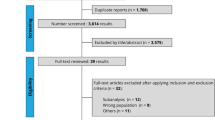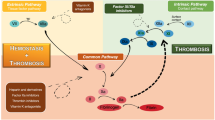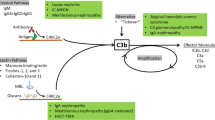Abstract
Hereditary angioedema due to C1 inhibitor deficiency (C1-INH-HAE) is caused by mutations affecting the SERPING1 gene. Adult patients (≥ 18 years old) diagnosed with C1-INH-HAE were clustered according to a modified SERPING1 gene mutation classification [5]. Demographic, clinical, and laboratory data were studied. Published manuscripts on the genotype/phenotype relationship were reviewed. Eighty-eight patients participated in the study, with 78 having a classifiable mutation. We compared the data in the 3 largest groups: class 0 only (n = 32), class II only (n = 18), class III only (n = 22). Antigenic C4 and C1 inhibitors were higher in class II (p = 0.008 and p = 0.02, respectively), and facial attacks in the last 6 months were more frequent in class III (p = 0.04)). All the other differences were non-significant. Twelve manuscripts on phenotype/genotype correlation were found: missense mutations in SERPING1 gene were associated with delay in disease onset and lower severity score in some studies, whereas the CC F12-C46T/C polymorphism produced earlier disease onset. Our study shows minimal differences regarding clinical phenotype in patients with class 0, II, and III SERPING1 gene mutations, with a tendency to class III having a more severe phenotype. The study should be performed in a larger sample to confirm if they are significant.
We propose that larger multicenter, international studies are performed, comparing different SERPING1 gene mutation classifications, combining polymorphisms in other involved genes (kallikrein-kinin system, regulation of vasculature, plasminogen activation) and using different variables and clinical scores to assess C1-INH-HAE disease activity and/or severity in order to study possible genotype/phenotype relationships.
Similar content being viewed by others
Data Availability
The data that support the findings of this study are available from the corresponding author upon reasonable request.
Abbreviations
- HAE:
-
Hereditary angioedema
- C1-INH:
-
C1 inhibitor
- C1-INH-HAE:
-
Hereditary angioedema due to C1 inhibitor deficiency
- RCL:
-
Reactive center loop
- pdC1INH:
-
Plasma-derived human C1 inhibitor concentrate
- LTP:
-
Long-term prophylaxis
- IQR:
-
Interquartile range
References
Longhurst HJ, Bork K (2019) Hereditary angioedema: an update on causes, manifestations and treatment. Br J Hosp Med (Lond) 80(7):391–398. https://doi.org/10.12968/hmed.2019.80.7.391
Wagenaar-Bos IG, Hack CE (2006) Structure and function of C1-inhibitor. Immunol Allergy Clin North Am 26(4):615–632. https://doi.org/10.1016/j.iac.2006.08.004
Law RHP, Zhang Q, McGowan S, Buckle AM, Silverman GA, Wong W, Rosado CJ, Langendorf CG, Pike RN, Bird PI, Whisstock JC (2006) An overview of the serpin superfamily. Genome Biol 7(5):216. https://doi.org/10.1186/gb-2006-7-5-216
Huntington JA (2011) Serpin structure, function and dysfunction. J Thromb Haemost 9(1S):26–34. https://doi.org/10.1111/j.1538-7836.2011.04360.x
Bos IG, Hack CE, Abrahams JP (2002) Structural and functional aspects of C1-inhibitor. Immunobiology 205(4–5):518–533. https://doi.org/10.1078/0171-2985-00151
Cugno M, Zanichelli A, Foieni F, Caccia S, Cicardi M (2009) C1-inhibitor deficiency and angioedema: molecular mechanisms and clinical progress. Trends Mol Med 15(2):69–78. https://doi.org/10.1016/j.molmed.2008.12.001
Bodian DL, Vilboux T, Hauser NS (2019) Genotype-first analysis of a generally healthy population cohort supports genetic testing for diagnosis of hereditary angioedema of unknown cause. Allergy Asthma Clin Immunol 15:32. https://doi.org/10.1186/s13223-019-0346-1
Germenis AE, Margaglione M, Pesquero JB, Farkas H, Cichon S, Csuka D, Lera AL, Rijavec M, Jolles S, Szilagyi A, Trascasa ML, Veronez CL, Drouet C, Zamanakou M; Hereditary Angioedema International Working Group (2020) Hereditary Angioedema International Working Group. International Consensus on the Use of Genetics in the Management of Hereditary Angioedema. J Allergy Clin Immunol Pract 8(3):901–911. https://doi.org/10.1016/j.jaip.2019.10.004
Stenson PD, Mort M, Ball EV, Evans K, Hayden M, Heywood S, Hussain M, Phillips AD, Cooper DN (2017) The Human Gene Mutation Database: towards a comprehensive repository of inherited mutation data for medical research, genetic diagnosis and next generation sequencing studies. Hum Genet 136(6):665–677. https://doi.org/10.1007/s00439-017-1779-6
Ponard D, Gaboriaud C, Charignon D, Ghannam A, Wagenaar-Bos IGA, Roem D, López-Lera A, López-Trascasa M, Tosi M, Drouet C (2020) SERPING1 mutation update: mutation spectrum and C1 Inhibitor phenotypes. Hum Mutat 41(1):38–57. https://doi.org/10.1002/humu.23917
López-Lera A, Garrido S, Roche O, López-Trascasa M (2011) SERPING1 mutations in 59 families with hereditary angioedema. Mol Immunol 49(1–2):18–27. https://doi.org/10.1016/j.molimm.2011.07.010
João Forjaz M, Ayala A, Caminoa M, Prior N, Pérez-Fernández E, Caballero T; DV-HAE-QoL study group (2020) HAE-AS, a specific disease activity scale for hereditary angioedema with C1-inhibitor deficiency J Investig Allergol Clin Immunol. https://doi.org/10.18176/jiaci.0479
Bygum A, Fagerberg CR, Ponard D, Monnier N, Lunardi J, Drouet C (2011) Mutational spectrum and phenotypes in Danish families with hereditary angioedema because of C1 inhibitor deficiency. Allergy 66(1):76–84. https://doi.org/10.1111/j.1398-9995.2010.02456.x
Maia LSM, Moreno AS, Ferriani MPL, Nunes FL, Ferraro MF, Dias MM, Roxo-Junior P, Dias FC, Valle SOR, Levy S, Alonso MLO, França AT, Serpa FS, Motta AA, Maia FGM, Aragon DC, Sarti W, Silva WA Jr, Cichon S, Bork K, Arruda LK (2019) Genotype-phenotype correlations in Brazilian patients with hereditary angioedema due to C1 inhibitor deficiency. Allergy 74(5):1013–1016. https://doi.org/10.1111/all.13699
Ferraro MF, Moreno AS, Castelli EC, Donadi EA, Palma MS, Arcuri HA, Lange AP, Bork K, Sarti W, Arruda LK (2011) A single nucleotide deletion at the C1 inhibitor gene as the cause of hereditary angioedema: insights from a Brazilian family. Allergy 66(10):1384–1390. https://doi.org/10.1111/j.1398-9995.2011.02658.x
Bors A, Csuka D, Varga L, Farkas H, Tordai A, Füst G, Szilagyi A (2013) Less severe clinical manifestations in patients with hereditary angioedema with missense C1INH gene mutations. J Allergy Clin Immunol 131(6):1708-1711.e3. https://doi.org/10.1016/j.jaci.2012.11.015
Mete Gökmen N, Gülbahar O, Onay H, Peker Koc Z, Özgül S, Köse T, Gelincik A, Büyüköztürk S, Sin AZ (2019) Deletions in SERPING1 lead to lower C1 inhibitor function: lower C1 inhibitor function can predict disease severity. Int Arch Allergy Immunol 178(1):50–59. https://doi.org/10.1159/000492583
Speletas M, Szilagyi A, Psarros F, Moldovan D, Magerl M, Kompoti M, Gramoustianou E, Bors A, Mihaly E, Tordai A, Avramouli A, Varga L, Maurer M, Farkas H, Germenis AE (2015) Hereditary angioedema: molecular and clinical differences among European populations. J Allergy Clin Immunol 135(2):570–573. https://doi.org/10.1016/j.jaci.2014.08.007
Xu YY, Zhi YX, Yin J, Wang LL, Wen LP, Gu JQ, Guan K, Craig T, Zhang HY (2012) Mutational spectrum and geno-phenotype correlation in Chinese families with hereditary angioedema. Allergy 67(11):1430–1436. https://doi.org/10.1111/all.12024
Andrejević S, Korošec P, Šilar M, Košnik M, Mijanović R, Bonači-Nikolić B, Rijavec M (2015) Hereditary angioedema due to C1 inhibitor deficiency in Serbia: two novel mutations and evidence of genotype-phenotype association. PLoS ONE 10(11):1–11. https://doi.org/10.1371/journal.pone.0142174
Grivčeva-Panovska V, Košnik M, Korošec P, Andrejević S, Karadža-Lapić L, Rijavec M (2018) Hereditary angioedema due to C1-inhibitor deficiency in Macedonia: clinical characteristics, novel SERPING1 mutations and genetic factors modifying the clinical phenotype. Ann Med 50(3):269–276. https://doi.org/10.1080/07853890.2018.1449959
Gianni P, Loules G, Zamanakou M, Kompoti M, Csuka D, Psarros F, Magerl M, Moldovan D, Maurer M, Speletas MG, Farkas H, Germenis AE (2017) Genetic determinants of C1 inhibitor deficiency angioedema age of onset. Int Archives Allergy Immunol 174(3–4):200–204. https://doi.org/10.1159/000481987
Veronez CL, Aabom A, Martin RP, Filippelli-Silva R, Gonçalves RF, Nicolicht P, Mendes AR, Da Silva J, Guilarte M, Grumach AS, Mansour E, Bygum A, Pesquero JB (2019) Genetic variation of kallikrein-kinin system and related genes in patients with hereditary angioedema. Front Med (Lausanne) 6:28. https://doi.org/10.3389/fmed.2019.00028
Rijavec M, Košnik M, Andrejević S, Karadža-Lapić L, Grivčeva-Panovska V, Korošec P (2019) The functional promoter F12–46C/T variant predicts the asymptomatic phenotype of C1-INH-HAE. Clin Exp Allergy 49(11):1520–1522. https://doi.org/10.1111/cea.13470
Speletas M, Szilágyi Á, Csuka D, Koutsostathis N, Psarros F, Moldovan D, Magerl M, Kompoti M, Varga L, Maurer M, Farkas H, Germenis AE (2015) F12–46C/T polymorphism as modifier of the clinical phenotype of hereditary angioedema. Allergy 70(12):1661–1664. https://doi.org/10.1111/all.12714
Bygum A, Busse P, Caballero T, Maurer M (2017) Disease severity, activity, impact, and control and how to assess them in patients with hereditary angioedema. Front Med (Lausanne) 4:212. https://doi.org/10.3389/fmed.2017.00212
Acknowledgments
The authors would like to thank all the patients involved for giving consent and support to this study.
Funding
ALL is supported by the Centre for Biomedical Network Research on Rare Diseases. TC is a researcher from the IdiPaz program to promote research activities. This work was partially supported by grant PI15-00255 from Instituto de Salud Carlos III (ISCIII, Ministerio de Economía y Competitividad) and Fondos FEDER.
Author information
Authors and Affiliations
Contributions
DLA, ALL and TC designed the study. ALL performed the genetic study. ALL and CD classified the SERPING1 gene mutations. RC, ML, EP, MP, TC collected the clinical data and passed the HAE-AS to patients. DLA and MP performed the statistical analysis. All the authors analyzed the results. DLA and TC wrote the manuscript. All authors contributed to the article and approved the submitted version.
Corresponding author
Ethics declarations
Conflicts of Interest
The authors certify that they have no affiliations with or involvement in any organization or entity in the subject matter or materials discussed in this manuscript.
Ethical Approval
The Ethics Review Panel of La Paz University Hospital reviewed and approved this study meeting the requirements of the 2013 Helsinki declaration and its later amendments (PI-1654, PI-2297).
Informed Consent
All patients included were duly informed and gave written consent to participate and have their samples biobanked.
Additional information
Publisher’s Note
Springer Nature remains neutral with regard to jurisdictional claims in published maps and institutional affiliations.
Rights and permissions
About this article
Cite this article
Loli-Ausejo, D., López-Lera, A., Drouet, C. et al. In Search of an Association Between Genotype and Phenotype in Hereditary Angioedema due to C1-INH Deficiency. Clinic Rev Allerg Immunol 61, 1–14 (2021). https://doi.org/10.1007/s12016-021-08834-9
Accepted:
Published:
Issue Date:
DOI: https://doi.org/10.1007/s12016-021-08834-9




